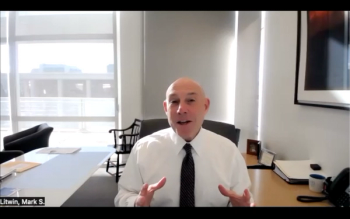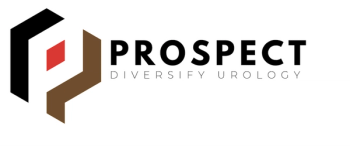
Moral Injury: A better model for understanding burnout
"We need to change not medicine but the delivery of medicine before the current system changes us anymore," writes Henry Rosevear, MD.
Dr. Rosevear is a urologist in community practice in Colorado Springs, CO. Urology Times blogs present opinions, advice, and news from urologists and other urology professionals. Opinions expressed by bloggers are their own, and do not necessarily reflect the views of Urology Times or its parent company, MJH Life Sciences.
One of the many reasons I love this blog is reading the emails I receive from other physicians. They not only offer me valuable insights into the thoughts of the medical community but also keep me constantly up to date on the latest trends in medicine. I had just returned from a fishing trip with my four daughters when I found an email with a link to a
I’m not an expert on burnout but I thought I understood it. A good friend is currently writing a book on the topic, and I have read his first draft and thought I understood its causes. I knew that burnout is characterized by three keys factors: a sense of personal and professional exhaustion, a feeling of cynicism and/or detachment, and a sense of ineffectiveness. Further, I was even aware of some of the theoretical models that exist to describe burnout, my favorite being the Job-Demands-Resources model, which postulates that burnout is caused when someone is presented with incessant job requirements without being given the appropriate resources.
I had even gone so far as to take some of the validated quantitative surveys that exist to see where I stood myself (if you’re curious, search online for Maslach Burnout Inventory, Bergen Burnout Inventory, or Oldenburg Burnout Inventory).
Let’s be honest, medicine is exhausting. We are a sarcastic group. But does that really mean that that an entire profession is teetering on the edge of burnout? No. But we may be suffering from an ongoing moral injury.
Also from Dr. Rosevear:
Simon Talbot, MD, and Wendy Dean, MD, recently wrote a lovely, novel, and thought-provoking article proposing that instead of considering physicians as experiencing burnout, they are instead exposed to an ongoing moral injury. I highly recommend everyone read the
The concept of “moral injury” first appeared in 2009 in an
The concept equally applies to physicians. Most, but certainly not all, physicians entered the field with an honest desire to help people. Yes, we knew that the job paid well and that it offered a well-defined path to the upper middle class, but so do many other professions.
Further, the concept of putting patients first is front and center at every stage of our training from volunteering in college, to learning about the patient-physician relationship during medical school, to accepting the long hours and the personal, family, and financial strains of residency. Our entire professional purpose is to meet the demands of our patients. And when we can’t, we suffer a moral injury.
Why can’t we meet the needs of our patients? We are well trained and we have an incredible armamentarium of surgeries, medicines, and diagnostic tools at our disposal so you would think that doing our job would be easy. But it’s not the medicine that causes the problem, as Drs. Simon and Dean point out; it’s the environment we are forced to work in.
In the corporate, profit-driven environment we practice in, conflicts of interest are everywhere. Financial considerations of the patient or even our practices create conflicts. The work required to properly implement modern electronic health records turns doctors into data entry clerks. Fear of litigation, properly founded or not, changes what tests we order and how we interact with patients. The demands of maintaining good scores from patient satisfaction surveys and monitoring and responding to online patient criticism is overwhelming and often runs counter to practicing good medicine.
Next:
Read:
As Drs. Simon and Dean state, we need an environment where physicians are given the respect and autonomy to make rational, financially responsible decisions. We need to work with patients who acknowledge their role in their own health care and work with us. We need hospital and business leaders who understand that physicians possess knowledge and skills and are not just replaceable assets.
Overall, we need to change not medicine but the delivery of medicine before the current system changes us anymore.
Newsletter
Stay current with the latest urology news and practice-changing insights — sign up now for the essential updates every urologist needs.






